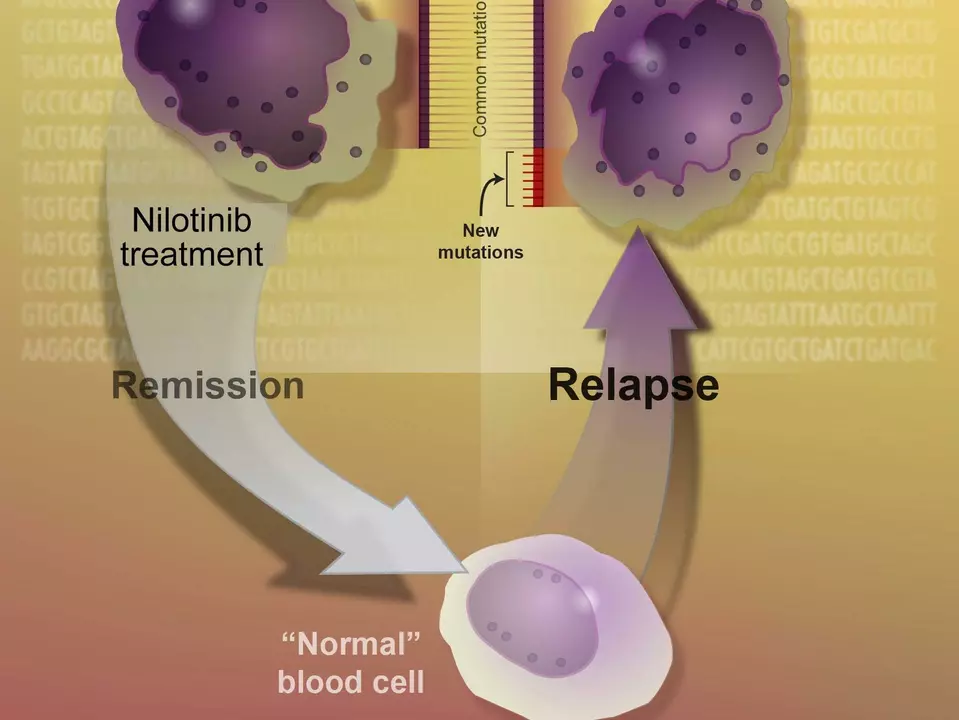Nilotinib – Quick Guide to This Cancer Medication
If you’ve heard the name nilotinib, you’re probably wondering what it actually does. In simple terms, nilotinib is a prescription pill that helps treat chronic myeloid leukemia (CML), a type of blood cancer. It works by blocking a protein called BCR‑ABL, which drives the growth of cancer cells.
Doctors usually prescribe nilotinib when other treatments haven’t worked or when patients need a stronger option. The drug comes in 150 mg and 300 mg tablets, and most people take it twice a day on an empty stomach—meaning at least one hour before or two hours after eating.
How to Take Nilotinib Safely
First thing: follow your doctor’s instructions exactly. Skipping doses can let the cancer bounce back, while taking extra pills increases side‑effect risk. Keep a pill box and set alarms if you tend to forget.
Because food can lower how much of the drug gets into your bloodstream, make sure you swallow each tablet with plain water and wait before having breakfast or a snack. If you’re on other meds, tell your pharmacist—nilotinib can interact with many drugs, especially antibiotics and antifungals.
Common Side Effects to Watch
Most people experience some mild issues at first. Expect things like headache, nausea, or muscle cramps. A few users notice skin rash or itchiness; these usually fade after a couple of weeks.
More serious concerns include changes in heart rhythm, high blood sugar, and liver problems. If you feel chest pain, unusual tiredness, or see yellowing of the skin or eyes, call your doctor right away. Regular blood tests are part of the treatment plan to catch any hidden issues early.
Staying hydrated helps a lot—aim for at least eight glasses of water daily unless your doctor says otherwise. Also, avoid grapefruit and its juice; they can boost nilotinib levels too much and cause trouble.
One question many patients ask is whether they can drink alcohol while on nilotinib. Small amounts are generally okay, but heavy drinking can strain the liver, which already works harder with this medication. Talk to your doctor about what’s safe for you.
If you’re planning a pregnancy or think you might become pregnant, discuss it now. Nilotinib can affect an unborn baby, so doctors usually advise using effective birth control during treatment and for a while after stopping the drug.
Lastly, don’t forget to keep all your follow‑up appointments. Your doctor will check blood counts, liver function, and heart health regularly to make sure nilotinib stays safe and effective for you.
In short, nilotinib is a powerful tool against CML when used correctly. Stick to the dosing schedule, watch for side effects, stay hydrated, and keep open communication with your healthcare team. With those steps, you give yourself the best chance of managing the disease while minimizing risks.

The Role of Nilotinib in the Treatment of Chronic Myeloid Leukemia (CML)
As a blogger, I recently came across an interesting topic - the role of Nilotinib in the treatment of Chronic Myeloid Leukemia (CML). CML is a type of blood cancer that affects the white blood cells, and Nilotinib is a targeted therapy that has shown promising results in its treatment. What makes Nilotinib stand out is its ability to block specific proteins that cause the growth of cancer cells, helping to slow down or stop the progression of the disease. Additionally, Nilotinib has been found to be more effective and tolerable than other treatments, such as imatinib, in certain cases. It's truly fascinating to see how advances in medical research continue to provide hope and improved treatment options for those battling CML.
Read More